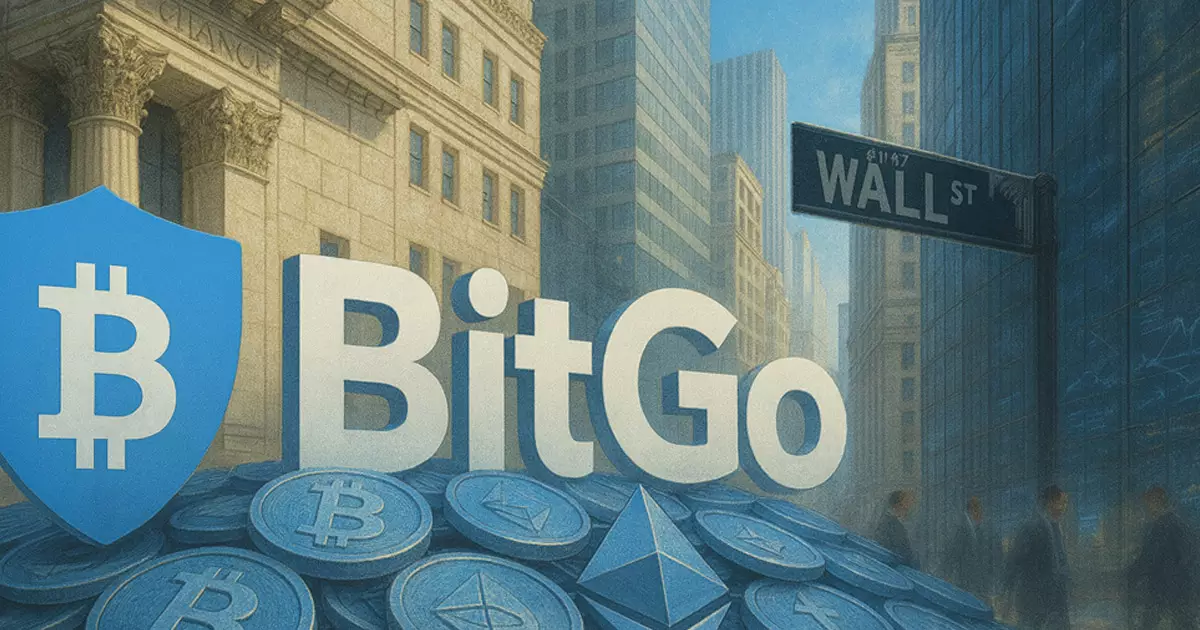BitGo’s decision to file confidential paperwork with the SEC marks a pivotal moment that signals a shift in the digital asset landscape. While the company’s intentions are cloaked in secrecy—likely to avoid market speculation—this move underscores a deliberate effort to legitimize cryptocurrency infrastructure within traditional finance. But the question remains: can a company rooted in innovative, yet relatively nascent, technology truly bridge the chasm to mainstream finance without risking its core identity? In my view, this IPO isn’t just about capital; it’s an assertion of control over how digital assets integrate into the broader economic fabric.
BitGo’s core strength has always been its focus on security and compliance, vital for institutional clients wary of regulatory pitfalls. The fact that the firm is positioning itself to serve as a regulated custodian preparatory to listing on public markets indicates a shift from niche innovation towards a strategic push for authority. This is a double-edged sword—on one hand, it promises more stability and legitimacy; on the other, it could dilute the very essence of decentralization that fuels much of the crypto ideology. This move seems to reflect a pragmatic compromise, ultimately prioritizing profit and acceptance over ideological purity.
International Ambitions Versus Regulatory Challenges
Securing approval under the EU’s MiCA framework is a masterstroke for BitGo, effectively positioning it as a pioneer among U.S.-based crypto firms seeking pan-European compliance. This maneuver demonstrates a calculated effort to capitalize on the European market’s desire for regulated crypto services, which can be seen as both strategic and somewhat opportunistic. However, it also exposes a fundamental contradiction: is the firm genuinely committed to advancing blockchain technology’s decentralization, or is it merely leveraging regulatory loopholes to maximize growth?
A bank of this caliber, aiming for a national charter in the United States, signals a desire to integrate crypto services into the traditional banking system—an ambition that raises eyebrows among crypto purists. While increasing regulatory clarity and institutional interest are encouraging, they potentially threaten the core principles of transparency and decentralization. Instead of fostering innovation in an open manner, this approach risks consolidating power into the hands of a few well-connected companies, thereby undermining the competitive ethos that crypto originally championed.
Market Realities and the Illusion of Legitimacy
The broader context of BitGo’s plans cannot be divorced from the recent crypto rally and the explosive growth in market capitalization. Bitcoin’s trading above $120,000 and the influx of institutional money create a seemingly golden opportunity for crypto giants to go public. But beneath this optimism lies a murky reality—market enthusiasm often masks underlying fragility and regulatory uncertainty.
Going public may be seen as a stamp of legitimacy, but it also invites increased scrutiny, potential overregulation, and the risk of losing the agile, disruptive edge that made crypto appealing. For investors and institutions, the allure of regulated custody solutions might translate into greater compliance and less volatility—yet it could also entrench the dominance of a handful of powerful firms, further marginalizing smaller players and eroding the decentralization that supposed the foundation of the entire industry.
In essence, BitGo’s IPO is less about democratizing access to digital assets and more about placating the establishment to ensure its survival in a rapidly evolving financial ecosystem. Whether this will lead to true mainstream acceptance or a sanitized, heavily regulated version of crypto remains to be seen, but one thing is certain: the sector’s future hinges on whether it can maintain its innovative spirit amid these heavy-handed attempts at institutional integration.


Leave a Reply